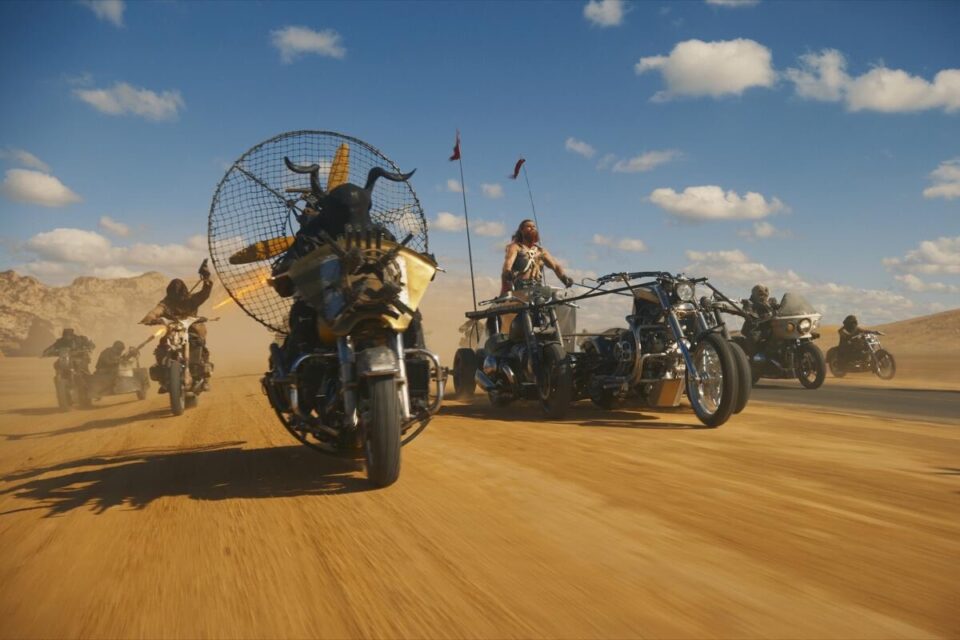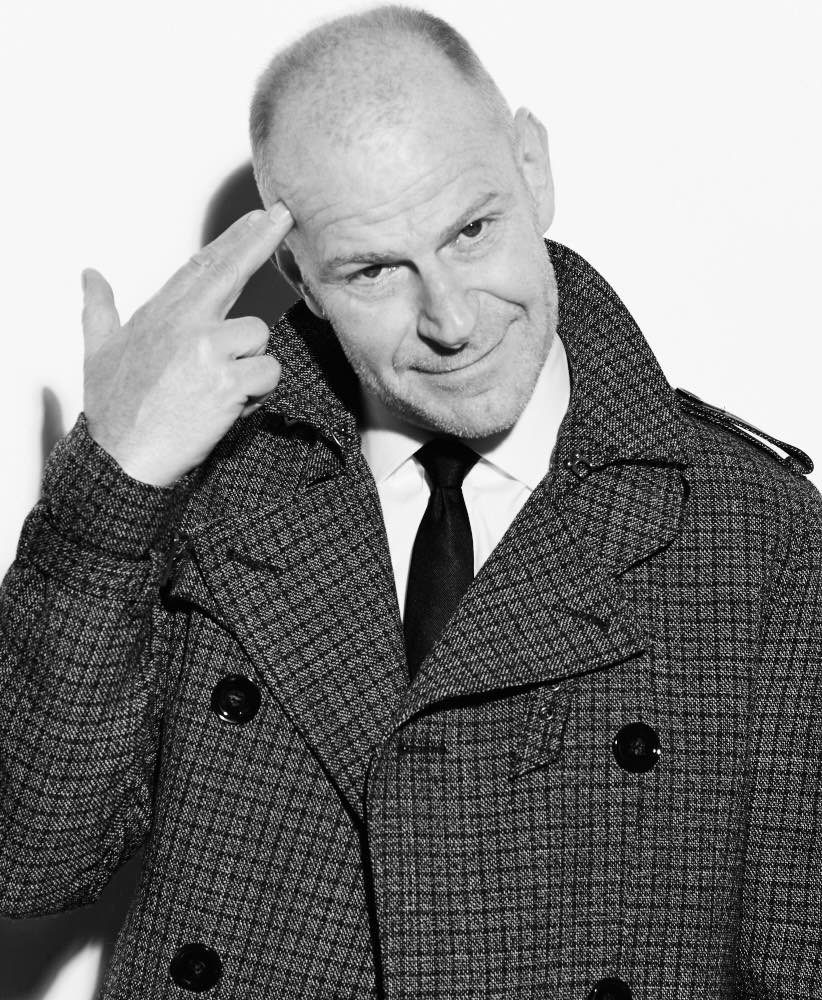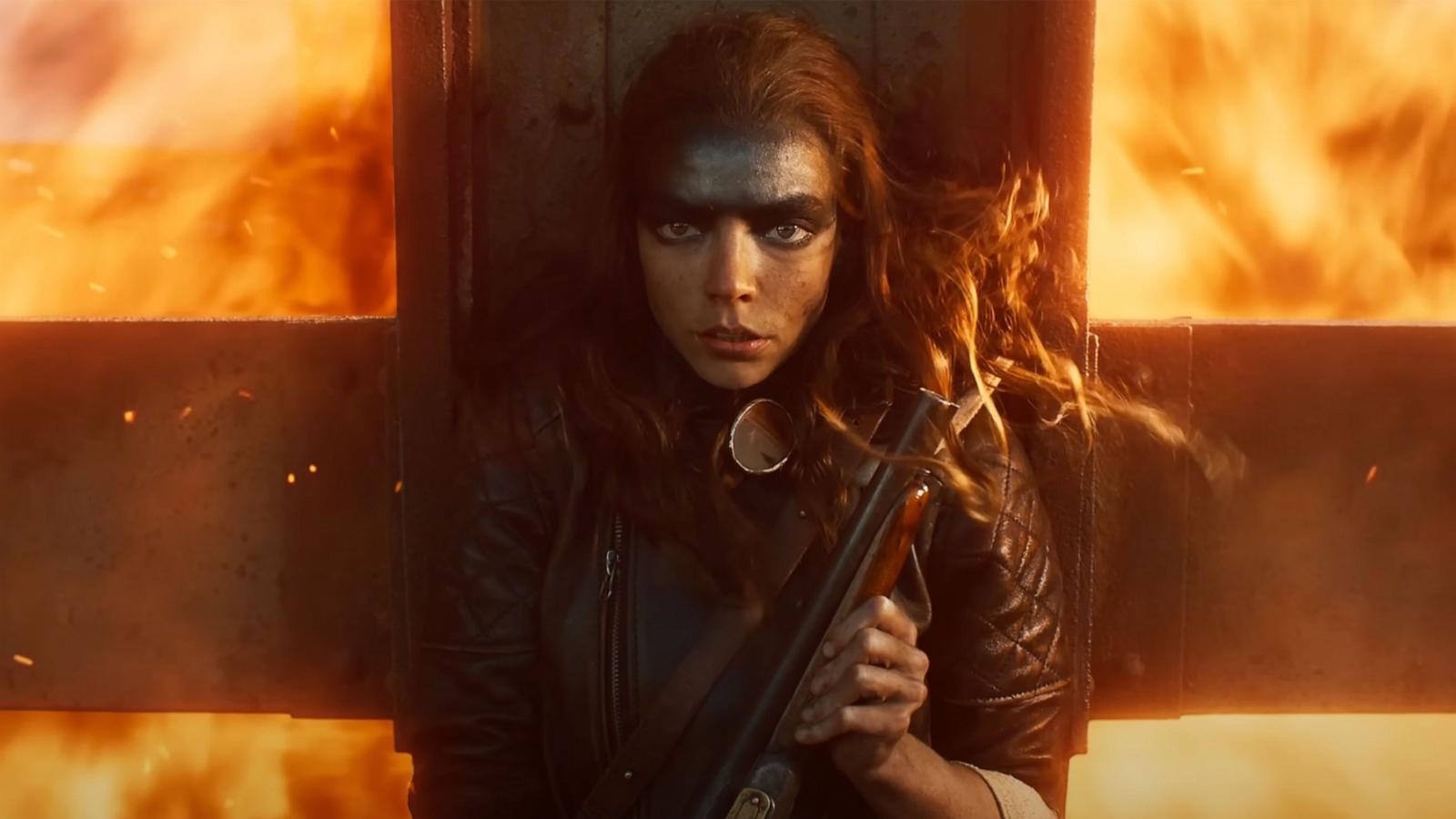Tom Holkenborg, also known as Junkie XL, is a GRAMMY-nominated, multi-platinum producer, musician, composer, educator, and engineer. Originally known for his progressive trance music, he’s since shifted to producing electronic percussion soundtracks for films with credits dating back to 2002’s Resident Evil and since including blockbusters such as Mad Max: Fury Road, Deadpool, The Dark Tower, Tomb Raider, Terminator: Dark Fate, and the recent Godzilla x Kong: The New Empire.
It’s quite an impressive resume, and he’s returned to work with longtime collaborator George Miller for the prequel to 2015’s post-apocalyptic action epic Fury Road with this summer’s Furiosa: A Mad Max Saga (in the interim, they also collaborated on 2022’s Three Thousand Years of Longing). Holkenborg notes that this new film had been planned for a very long time, and that Miller isn’t done with the Wasteland and its nasty denizens surviving and warring for resources.
We got on the War Rig horn with Holkenborg following the release of Furiosa for a (spoiler-filled) chat about the surprising restraint and silence in his latest collaboration with Miller, composing a film from a wholly new perspective, and the strange and beautiful details that go into scoring wild Wasteland locations such as the Bullet Farm, the Citadel, and Gas Town.
From the time of the last movie to now, what are some of the things that you’ve accomplished and reflected upon?
Well, when I met George [Miller] in 2013 and he hired me to compose Fury Road, right from the start I knew there was another script that he wanted to film. It was clear to me that he has, like, 50, 60 years of Wasteland stories in his head, completely detailed. We became friends in the process of doing Fury Road. We had so many talks between the movies that we worked on, but also during the movies. I knew exactly what was coming 11 years ago. It was super exciting to go back to the Wasteland world that technically had never left me. It had a more high-octane rock-and-roll approach to it, if you will.
Fury Road had that vibe of a rock concert on the road, whereas this movie has a different perspective. You talked about how it’s more of that first-person perspective, so there are a few more moments of silence.
Story-wise, editing-wise, and music-wise, we’re setting everything up for Fury Road to start. And so it’s a movie that can live on its own, the same with Fury Road. But we already knew by using the duduk and didgeridoos for that very sparse moment [in Fury Road] where Furiosa is talking about the Green Place at night with Mad Max, that if Furiosa was going to be made, it would have big implications on how much of those instruments would actually play in this particular movie, because the grieving is still there and it’s only because she loses her arm with the map tattooed on it that she doesn’t know how to get back from that point forward. And she loses all hope of fighting in this place in the first place. But then at the end of this movie, she decides to take the five wives into the War Rig and still try to find the Green Place based purely on memory.
I’d love to hear your perspective on the sound design in terms of Dementus’ Biker Horde, which are more motorcycle-focused than the War Boys. What did you want to do differently?
Well, we’re looking at the Wasteland through the eyes of Furiosa. We’re not looking at the Wasteland as a third-person perspective on the road. We watch this insane spectacle almost taking place in real time within 36 to 48 hours, and you and I would both look at each other like, “Man, what a spectacle.” It almost warrants over rock on steroids. And so if you know that going into the movie, you basically are in the skin of Furiosa and how she sees things. So when she sees Dementus performing a horrible, horrible deed by slaughtering her mom and torturing her, she’s not listening in her head to an emotional string orchestra. She doesn’t even know what that is. What she does feel is a heart pumping out of her chest and a sheer panic in her head. That has big implications for how you approach things, musically.
“It’s so interesting that George had the guts to make a movie like this coming off Fury Road. It’s like an about-face, how to approach this movie.”
What’s interesting about this movie is that the most important sound is what George and I called the “dark stuff”—gods, the darkest angels, the fifth rider of the apocalypse, a person from the caves of hell filled with hatred and retribution. When Furiosa first meets Dementus, we don’t hear a theme for him, because she just looks at him—“Who is this crazy guy with a white outfit, long hair, and a teddy bear attached to his back?” Gradually Furiosa knows that he’s a horrible person. Eventually, he becomes the hunted and not the hunter. And so musically speaking, the way that Furiosa is so vulnerable when she’s young in his hands, it’s exactly reversed at the end of the film where Dementus is completely vulnerable. He has no power, his gang of motorcyclists have all been killed. He’s just there on a very shitty bike sleeping in a tent to weather out the storm, and she’s driving in the most powerful vehicle at that point in the Wasteland.
The vehicles have always been very instrumental in telling the narrative of the characters in the film. When Dementus is strong, he has the most powerful engine to support him. When Furiosa is vulnerable, her mom goes after her on the horse, and then after that on the shitty bike, and after that on the thunder bike when she approaches the camp. Eventually, Furiosa has one car herself—the Valiant, with two bikes on top—but no match for a six-foot truck. And then later on in the movie, it’s reversed. So that theme that’s playing when he does that gnarly darkest-of-gods action is intense. That’s how she envisions him—she becomes that herself eventually when she loses her arm and becomes filled with hatred and retribution and says at the end of the film, “You cannot balance the score of their suffering.” It’s so interesting that George had the guts to make a movie like this coming off Fury Road. It’s like an about-face, how to approach this movie.

You were talking about the hellish cave feelings before, and that got me thinking about the Bullet Farm, which is basically that. It’s a pivotal place in the development of Furiosa’s character in the story.
Especially that really big sequence when Praetorian Jack and Furiosa are separated and they’re willing to sacrifice for each other. If this was Fury Road, it would have so much percussion and over-the-top brass, strings, sound design, and guitars. But in this movie, it wouldn’t make any sense, because it’s the first-[person] perspective. When that’s happening, she’s just feeling that connection that she has with Praetorian Jack and the fact that he’s willing to sacrifice for her. And that’s why over that whole stretch we hear the sound of a duduk, which indicates the connection between the two of them, but also a reminder of the Green Place and that she wants to go back there with the tattoo intact on her arm. And that’s why we’re hearing that on that specific sequence and not actually music.
I remember talking to George about this sequence and I said to him, “Scoring this as a traditional action movie would be the wrong approach. I think we need to go further with the duduk and didgeridoo, and just really stretch it out and make sure it lives everywhere in the theater.” We both agreed [a big music score] would turn our film’s big set piece into a Batman action sequence. And it’s not what that’s about in that moment.

“Silence is one of the most powerful things a composer has in his arsenal. Especially with modern film scoring being wall-to-wall music—that’s not the case in this movie.”
Dementus is an interesting character: At the beginning he kind of thinks of himself as a white knight, and thinks he’ll do things differently than Immortan Joe. What did you see in the degradation of his character?
When she first meets him, Furiosa doesn’t quite know what to make of this guy, and so the music isn’t commenting on it that much when she’s in the tents. But then when she sees her mom being killed—and then again when the bikes rip one of the guys apart—she knows the brutality that he’s capable of. And so the music starts to get more gnarly at that point in the film, and then we get a real twist of the story where he saves her from the hands of Immortan Joe and then eventually trades her off again.
It’s a really weird dynamic between the two of them at that point. And musically, there’s no real comment on that. Even after Furiosa loses her arm, she still tries to go back to the Citadel, eventually just falling in the desert with the birds circling her and this brief shot of Max eating from the food can, which is exactly the start of Fury Road. So it’s interesting that we technically start more or less far into Fury Road. And then when she sees Dementus again, there’s that building of hatred already when she still has both arms—she has her hands on the gun in Gas Town where they’re doing deliveries together with Praetorian Jack. Dementus doesn’t recognize her, and it’s not until she loses the arm and everything that happens after that that she catches up to him.
And that’s when two levels of recognition are not being scored by music—they’re being scored by silence. And silence is one of the most powerful things a composer has in his arsenal. Especially with modern film scoring being wall-to-wall music—that’s not the case in this movie. So silence is potentially even more important in Furiosa than the music. That’s what we had a massive amount of discussion about in preparing for the movie. FL







